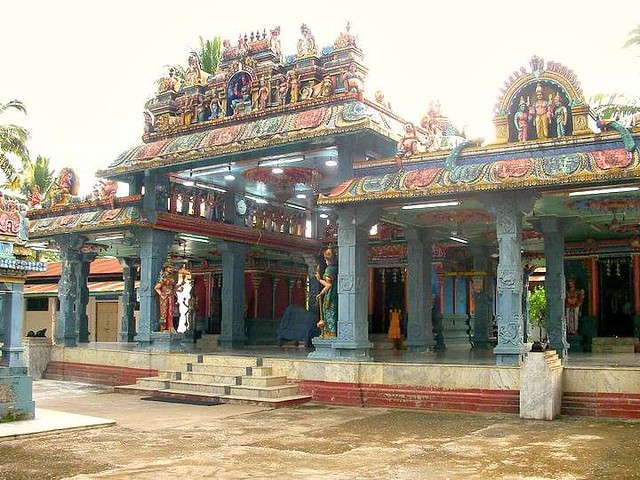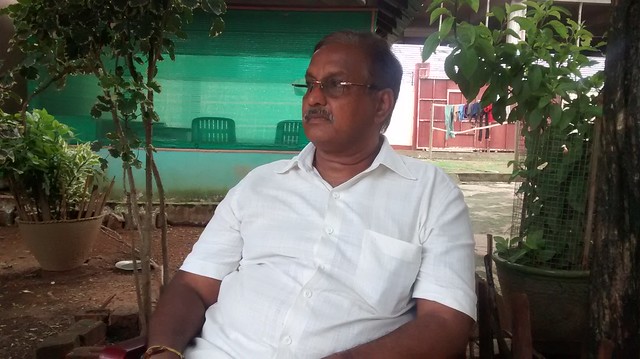By Amit Kumar, TwocirCles.net
Moreh, Manipur: Kalai Mani is a 29-year-old auto driver in Moreh, a small town in the Chandel district of Manipur. He speaks six languages:English, Hindi, Kuki, Mizo, Burmese and his mother tongue, Tamil. A second generation Tamil, Kalai has been an integral part of the small but surprisingly cosmopolitan society of Moreh, and says that no matter where he goes, his home will always be in Moreh.
The story of how Tamilians ended up settling in Moreh, nearly 2,000 miles away from Chennai goes back to the 60s, and the origin of the story lies in Myanmar, which is less than 2 kms from Moreh. Although Tamilians had been living and working in Burma for a long time, during the British rule of Burma their number increased substantially as they were employed in a range of jobs. However, once the British left, the local population turned hostile towards Tamilians, and they started leaving the country en masse. But many, despite fleeing Burma, harboured hopes of going back to Rangoon, among other places. They made their way through Assam and Nagaland before reaching Moreh, but were never allowed to return, so they camped in Moreh hoping that one day, they would return to Burma. However, that never happened and by 1970, they started settling in Moreh, their new home.
For Kalai and his parents, Moreh has always been home, even though it was a forced choice in the beginning. However, the local Tamil population has now become an important, and some would say inseparable part of the town. But they are also aware that despite all this, they remain migrants in a state that is currently simmering over the issue of the inner line permit. And this hasn’t escaped the attention of a community that is closely knit, but whose numbers have been dwindling over the past two decades.
In the 70s, the Tamilians found their feet in handling the cross-border trade, owing to their knowledge of Burmese along with the laws of Myanmar. Acording to a member of the local Tamil Sangam, by early 90s, as trade in the region locked up, the number of Tamilians in Moreh had reached an all-time high of almost 20,000. However, the mid 90s saw major clashes between Tamils, Kukis and Meiteis and fearing for the worst, a sizeable chunk left the town, never to return. Along with this, a number of children whose parents had settled in the region found good jobs and left for good, and their parents followed. “For a number of Tamilians, Moreh was home but our roots belong somewhere else. So, people who got good jobs left immediately and hardly anyone returned,” explains Kalai.The Tamils were also hit economically after the opening of Naphalam Bazar, right on the edge of the Indo-Myanmar border, on the side of Myanmar.

According to Navin Kumar, Vice President, Tamil Sangam,the total population of Tamilians in Moreh now stands at about 1,500. Given that their numbers have been on the decline coupled with bitter experience of the past, it is no wonder that the community is keeping a close eye on the issue of Inner Line Permit, but has also chose to remain silent on the issue. According to Kumar, not saying anything is the best option for them. “It is an extremely important issue for the state and it’s people. The tribals and the Meiteis differ completely on the stand, and we have seen how this has lead to massive agitations and protests from both sides,” he says.
The three Bills: The Manipur Land Revenue and Land Reforms (Seventh) Amendment Bill 2015 (MLRLR Bill 2015), The Protection of Manipur People Bill, 2015 and The Manipur Shops and Establishments Act (Second) Amendment Bill 2015, are being presented by the Government of Manipur as a ‘solution’ to long pending demand for implementation of Inner Line Permit system by the Meitei organizations to protect them from the high rate of influx of outsiders.
The Inner Line Permit is a special permit required to enter certain restricted areas in the country, and currently such a system exists in Arunachal Pradesh, Nagaland and Mizoram. The Joint Committee on Inner Line Permit System (JCILPS) has been spearheading the movement for legislation to “protect the indigenous population from migrants.”
Chandel also differs from other hill districts of Manipur. Unlike districts like Churachandpur where the protests have almost completely been against the three controversial Bills, in Chandel the situation is different. Despite being a Hill district, even the Meiteis have a strong presence here owing to the location of Moreh as an important trade centre. So, over the last few years the town has witnessed both Meiteis and tribals coming out in support and against the Bills respectively. N Kumar says that the Tamil community has not been included in any discussion on the issue, but believes this is a good situation. “Anything we say, whether in support or against the Bill, is only likely to antagonise one party or the other. Either ways, we know that we cannot afford to upset anyone here,” he says. “The Bills will have a major impact on how migrants are treated in Manipur, and our fate will be no different from that of other migrants,” he adds.
For now, the small but strong Tamil population has not been caught in the Meitei-Tribal struggle over the issue, and are hoping that it remains so. However, to quote Kalai, “I wish we could have an opinion on the issue; that our views mattered. However, for peace to prevail, it is est for us to watch from a distance, so that we are not accused of taking sides,” he says.


